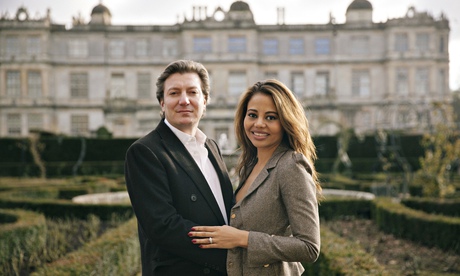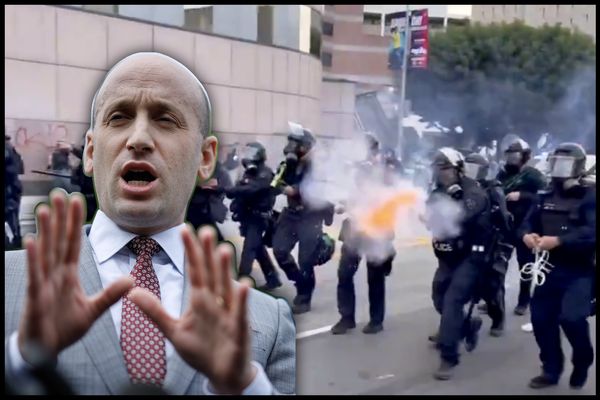
You can read about mad poshos all you want, and I do – Nancy Mitford novels, Evelyn Waugh, anything with Harold Nicolson – but there’s nothing like seeing them in their natural habitat. And so to All Change at Longleat, BBC1’s new documentary about the gradual handover of the £190m estate by Alexander Thynn, aka Marquess of Bath, aka the one with the wifelets, coloured waistcoats and worse murals, and long one of England’s most irritating eccentrics – to his son Ceawlin.
The pair are on no-speaks, because Ceawlin – pronounced, pleasingly in this tale of a feuding family on what is basically a British ranch pumping privilege instead of oil, “Sue Ellen” – has removed as much of his father’s grotesque artwork as possible from the apartments he has taken over. Lord Bath now lives in the top flat, visited by various wifelets, while Lady Bath spends much of her time in France. I wouldn’t consider that nearly far enough away myself, but the rich are indeed different.
Though this is not mentioned in the programme, according to the papers, Sue Ellen is also on no-speaks with his mother because – he claims, she denies it – she objected to him marrying Emma, the daughter of a Nigerian oil tycoon, and adulterating “the bloodline”. As Sue Ellen has no discernible chin or forehead, I say they should all be grateful for any new DNA they can get. Otherwise, by 2050, Longleat is going to be full of giant noses being wheeled round by staff until they realise they can just tip the family into the lion enclosure and take over the place themselves. Emma herself has the gimlet eye, composure and self-confidence that bodes well for her and Longleat’s survival
There are moments when you almost warm to Sue Ellen. He grew up with his awful father, the wifelets – his mother was already mostly abroad – and, of course, those murals. Was it a happy childhood, he is asked. “Y …aaaah,” he says uncomfortably. “Happy bits … not such happy bits. It was what it was.” When he was very young, he says, he envied his friends, who lived in the village. “Two-up, two-down, ordinary parents?” his questioner suggests. “Yah,” he says, visibly torn between truth and family loyalty. “It would have been a very different life.”
A shame, then, that he has chosen to hike village rents, formerly subsidised by the estate, to commercial levels, forcing many long-time residents and farmers out. This has clearly caused more anguish and hostility than the programme wants, or has been permitted by the family, to acknowledge. The new liaison officer from the Longleat management team, Michael, is sent to a village meeting, after relations with the previous lot broke down. One resident explains that there was a great lack of communication between the two sides. “Mmm,” says Michael, uncommunicatively. “Communication.” Another mentions the need for affordable housing. “Yup,” says Michael, making a note of – you suspect – precisely nothing on his pad. Because the rents have gone up so much that the people working on the estate cannot afford to live there, someone else explains. “Mmm,” says Michael.
Mmm. What is the point of having one’s own village on one’s own essentially self-sufficient estate, if one cannot use it to avoid having to do shitty things to one’s fellow human beings? Is that not the minimum price to be paid for privilege? If we’re still going to have lords with tenants-for-life on their land, if we’re still going to have 70% of the country owned by the 160,000 families who found themselves on the right side of history in 1067 (as we do), then can’t we – at the very least – keep the noblesse oblige element too? Or must the Thynn family and their ilk wax ever fatter?
Next week’s episode contains a Hitler watercolour. Stay, by all means, tuned.
Countdown to Life: the Extraordinary Making of You (BBC2) was an account of life before birth and the things that can influence our health and happiness before we even leave the womb. Michael Mosley – a warm amniotic sac of a presenter himself – took us through it. It was a bit schools-series with a dash of freak show thrown in. Here is a gene! If it works properly, you get to be a normal height! Not like Nell, who got two copies and is very tall, look! Your cells begin to split into 400 different types! Here is Melanie, whose didn’t quite! Mildly interesting, mildly edifying. Born a touch prematurely, perhaps.







